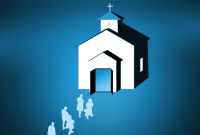Free Exercise and Religious Freedom

Is saying “Merry Christmas” really controversial? This article examines the “War on Christmas,” its cultural roots, and what employment law actually allows when it comes to holiday greetings, religious speech, and accommodations at work.

Explore the landmark Christian Employers Alliance v. EEOC case, where religious freedoms clashed with federal mandates on gender transition coverage. Discover key takeaways for business owners navigating religious beliefs and employment laws.

A recent decision from a federal district court in Washington State applied SOGI discrimination laws against a religious organization. This post discusses the ruling and its implications for faith-based employers.

A multi-chapter resource about a recent Fifth Circuit ruling holds there are protections and exemptions for religious employers regarding the sex discrimination provisions of Title VII of the Civil Rights Act of 1964.

A recent decision from the U.S. Supreme Court involving a religious display in Boston may impact religious liberty and faith-based organizations, by way of free speech and religious expression.

A court dismissed on religious grounds Plaintiffs’ action against a religious school for violating Title IX, brought when the school expelled them for being in a same sex marriage.

Implications of a court ruling on a religious organization firing an employee because his same-sex marriage violated the organization’s religious beliefs.

A federal court judge ruled that two Colorado churches do not have to comply with COVID-19 capacity limits or force their congregants to wear masks because that would violate the U.S. Constitution.

A recent decision from a federal appellate court explores the boundaries of the First Amendment’s ministerial exception to employment laws, specifically about the type of claims a minister can bring.

A downloadable resource by Theresa Lynn Sidebotham, Esq. about the challenging circumstances which public school teachers face when expressing their faith at work.
